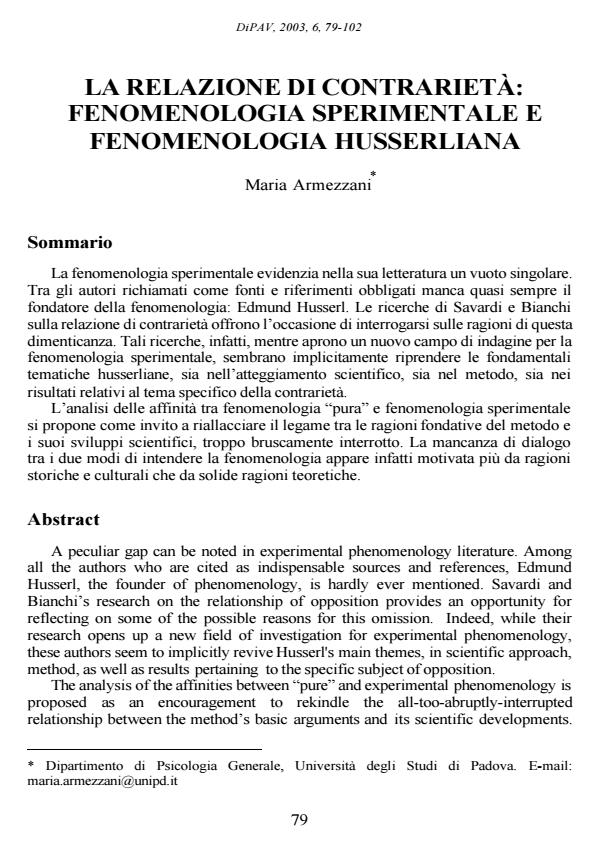La relazione di contrarietà: fenomenologia sperimentale e fenomenologia Husserliana
Journal title DiPAV - QUADERNI
Author/s Maria Armezzani
Publishing Year 2006 Issue 2003/6 Language Italian
Pages 24 P. File size 73 KB
DOI
DOI is like a bar code for intellectual property: to have more infomation
click here
Below, you can see the article first page
If you want to buy this article in PDF format, you can do it, following the instructions to buy download credits

FrancoAngeli is member of Publishers International Linking Association, Inc (PILA), a not-for-profit association which run the CrossRef service enabling links to and from online scholarly content.
A peculiar gap can be noted in experimental phenomenology literature. Among all the authors who are cited as indispensable sources and refer-ences, Edmund Husserl, the founder of phenomenology, is hardly ever men-tioned. Savardi and Bianchi’s research on the relationship of opposition provides an opportunity for reflecting on some of the possible reasons for this omission. Indeed, while their research opens up a new field of investiga-tion for experimental phenomenology, these authors seem to implicitly re-vive Husserl's main themes, in scientific approach, method, as well as re-sults pertaining to the specific subject of opposition. The analysis of the af-finities between pure and experimental phenomenology is proposed as an encouragement to rekindle the all-too-abruptly-interrupted relationship be-tween the method’s basic arguments and its scientific developments. The lack of dialogue between the two approaches to reading phenomenology is apparently due more to historical and cultural causes than to sound theoreti-cal reasons.
Maria Armezzani, La relazione di contrarietà: fenomenologia sperimentale e fenomenologia Husserliana in "DiPAV - QUADERNI" 6/2003, pp , DOI: